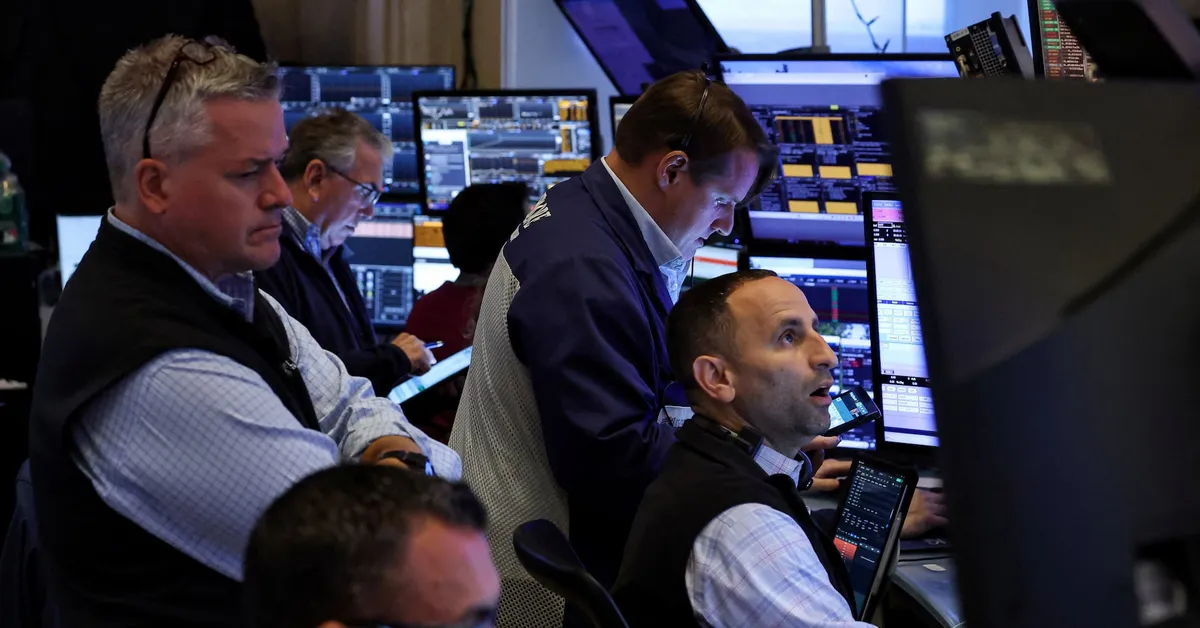
On Friday, August 29, Wall Street's main stock indexes experienced a downturn, with the Dow Jones Industrial Average dropping 0.10%, the S&P 500 falling by 0.30%, and the Nasdaq Composite declining 0.62%. This decline was primarily driven by the tech sector, which was hit hard after inflation data indicated that prices were rising higher than the central bank's target, raising concerns over the impact of tariffs on consumer goods.
According to a report from the Commerce Department, the Personal Consumption Expenditures Price Index, a key inflation gauge favored by the Federal Reserve, rose 2.6% year-over-year in July, aligning with expectations yet exceeding the Fed's 2% target. This uptick in inflation has prompted fears that the recent tariffs on imports are beginning to influence the prices of various goods significantly.
Additionally, the expiration of the U.S. tariff exemption for package imports valued under $800 has further escalated costs for businesses, which could ultimately lead to increased prices for consumers. Despite these challenges, traders remain optimistic about a potential 25-basis-point rate cut by the Federal Reserve in their upcoming September meeting, as indicated by data from LSEG.
Art Hogan, chief market strategist at B Riley Wealth, stated that the latest numbers "leave the door wide open for the Fed to go ahead and cut" rates during their meeting on September 17. While price pressures are on the rise, Hogan noted that the central bank seems to be prioritizing the health of the job market, with next Friday's nonfarm payrolls report expected to provide further insights.
Fed Governor Christopher Waller, a candidate for the Fed's top position, expressed his desire to commence rate cuts next month, echoing sentiments from President Donald Trump regarding the need to lower borrowing costs.
At 09:43 a.m. ET, the Dow Jones fell by 45.36 points to 45,591.54, while the S&P 500 lost 20.03 points, settling at 6,482.34. The Nasdaq Composite dropped 134.63 points, landing at 21,570.53. Despite the overall decline, the Russell 2000 index, which focuses on domestic companies, saw a slight increase of 0.1%, outperforming its counterparts this month.
The technology sector, in particular, saw notable losses, with personal computer manufacturer Dell and chipmaker Marvell experiencing declines of 14.4% and 6.4%, respectively, after both companies issued disappointing quarterly forecasts. Nvidia, the leader in AI chips, also fell by 2.7% following pessimistic outlooks concerning the Chinese market, although its overall performance and positive comments from CEO Jensen Huang helped mitigate investor concerns.
Attention now turns to a significant court hearing scheduled for 10 a.m. ET, where a federal judge will deliberate on whether to temporarily prevent President Trump from dismissing Federal Reserve Governor Lisa Cook. Additionally, global economic indicator Caterpillar saw a 3.1% drop after it raised its annual estimates for costs associated with tariffs. Conversely, design software company Autodesk surged 11.2% after increasing its annual earnings forecast.
Despite the day's challenges, advancing issues slightly outnumbered decliners on both the NYSE and the Nasdaq, signaling some resilience in the market. The S&P 500 recorded 19 new 52-week highs without any new lows, while the Nasdaq Composite noted 43 new highs against 24 new lows.
As the market adjusts to these economic indicators and corporate earnings reports, investors will be closely watching the developments in inflation, tariff impacts, and the upcoming Federal Reserve decisions.